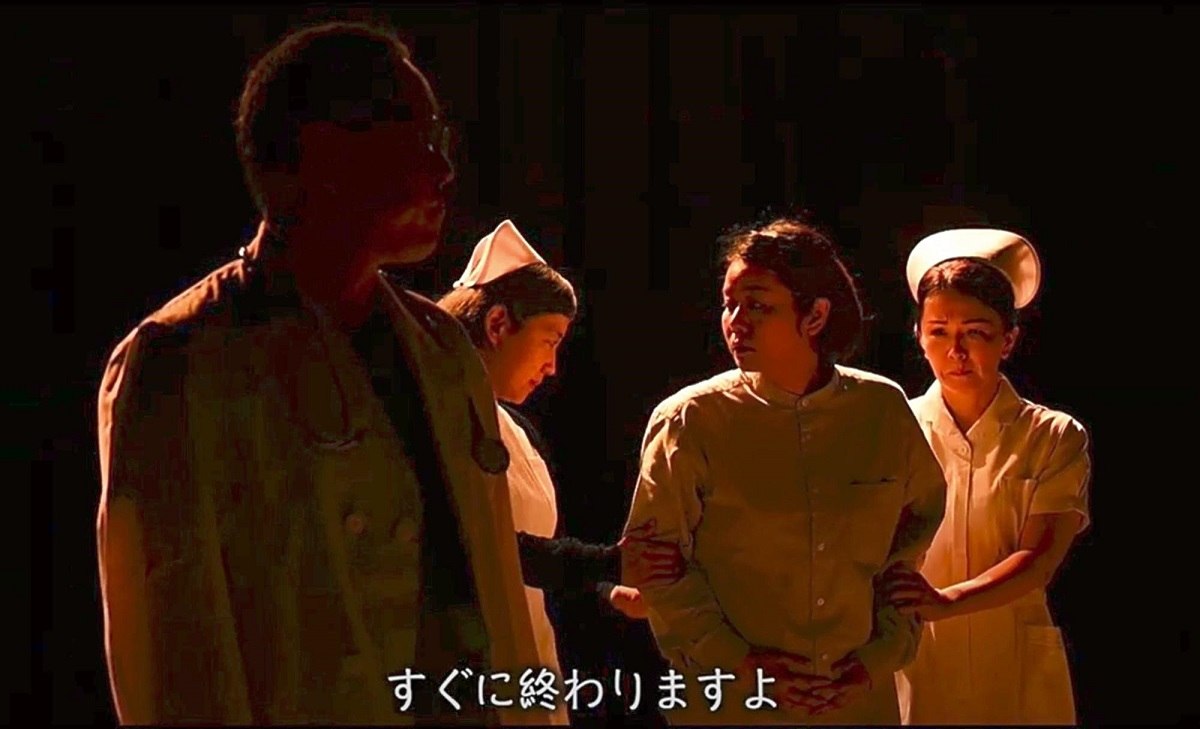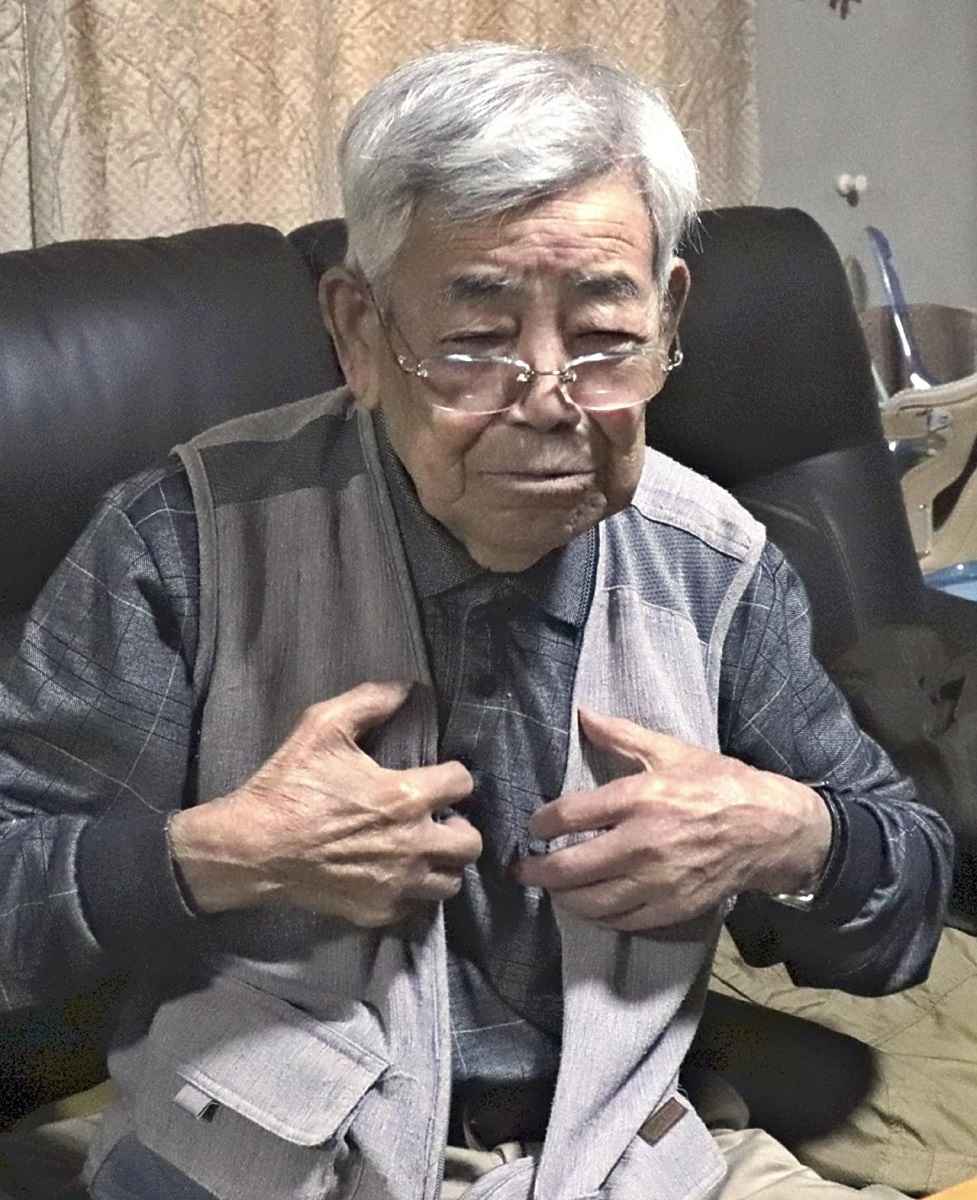New Film Depicts Suffering Of Forced Sterilization Victims; “Chinmoku No 50-Nen” Explores History Of Japan’s Eugenics Law

A scene in which a woman is forced to undergo surgery without explanation
1:00 JST, May 30, 2024
KOBE — Japan’s defunct Eugenic Protection Law, which allowed for the forced sterilization of people with disabilities, is at the heart of a recently completed film.
The film, “Chinmoku no 50-Nen” (50 years of silence), depicts the lives of Takaji Kobayashi, 92, a hearing-impaired man from Akashi, Hyogo Prefecture, and his wife. The film uses interviews and dramatic reenactments to depict the suffering of people who were deprived of the right to bear and raise children.

Takaji Kobayashi
Kobayashi married his wife Kimiko in 1960. They learned that she was pregnant shortly after their marriage and the couple looked forward to having a baby. They wondered whether the baby would be a boy or a girl but felt that either would be fine. However, their family suddenly told them that the baby was “rotten.” Kimiko was taken to a hospital, where she was forced to undergo an abortion. After that, Takaji and Kimiko continued hoping for a baby, but their wish never came true.
The Eugenic Protection Law was established in 1948 for the purpose of “preventing the birth of inferior offspring.” Across the nation, about 25,000 people with disabilities were forced to undergo surgical sterilization before the law was revised and became the Maternal Health Law in 1996.
The issue of forced sterilization under the now-defunct Eugenic Protection Law has been frequently covered by the media since January 2018. Hoping to make more people aware of the fact that these forced surgeries were performed, the couple made their identities public and filed a lawsuit with the Kobe District Court, seeking compensation from the government, in September of that year.
The 66-minute film depicts the couple’s painful ordeal. It includes scenes dramatizing their younger days, and Kobayashi appears as himself in the film to testify in sign language to the hardships he experienced.
In August 2021, the district court admitted the sterilization surgery had taken place but dismissed their request for damages, on the grounds that they had lost the right to demand compensation because too much time had passed. In March 2023, a high court ordered the government to pay compensation to them. The government has appealed the ruling to the Supreme Court.
“Give me back my original body. Give me back my baby,” Kimiko demanded, and she continued to repeat that demand until she died at age 89 in 2022, never seeing their victory in the lawsuit.
“I have been treated unfairly because of my hearing disability, and I have always borne it with patience and a sense of resignation. I would like to teach people about the suffering I have experienced through the film,” Kobayashi said.
The film will be shown on June 4 in Kobe and then in various parts of the country, including Tokyo’s Ota Ward on June 29.
Top Articles in Society
-

JAL, ANA Cancel Flights During 3-day Holiday Weekend due to Blizzard
-

Record-Breaking Snow Cripples Public Transport in Hokkaido; 7,000 People Stay Overnight at New Chitose Airport
-

Australian Woman Dies After Mishap on Ski Lift in Nagano Prefecture
-

Foreign Snowboarder in Serious Condition After Hanging in Midair from Chairlift in Nagano Prefecture
-

Train Services in Tokyo Resume Following Power Outage That Suspended Yamanote, Keihin-Tohoku Lines (Update 4)
JN ACCESS RANKING
-

Univ. in Japan, Tokyo-Based Startup to Develop Satellite for Disaster Prevention Measures, Bears
-

JAL, ANA Cancel Flights During 3-day Holiday Weekend due to Blizzard
-

China Confirmed to Be Operating Drilling Vessel Near Japan-China Median Line
-

China Eyes Rare Earth Foothold in Malaysia to Maintain Dominance, Counter Japan, U.S.
-

Japan Institute to Use Domestic Commercial Optical Lattice Clock to Set Japan Standard Time





















